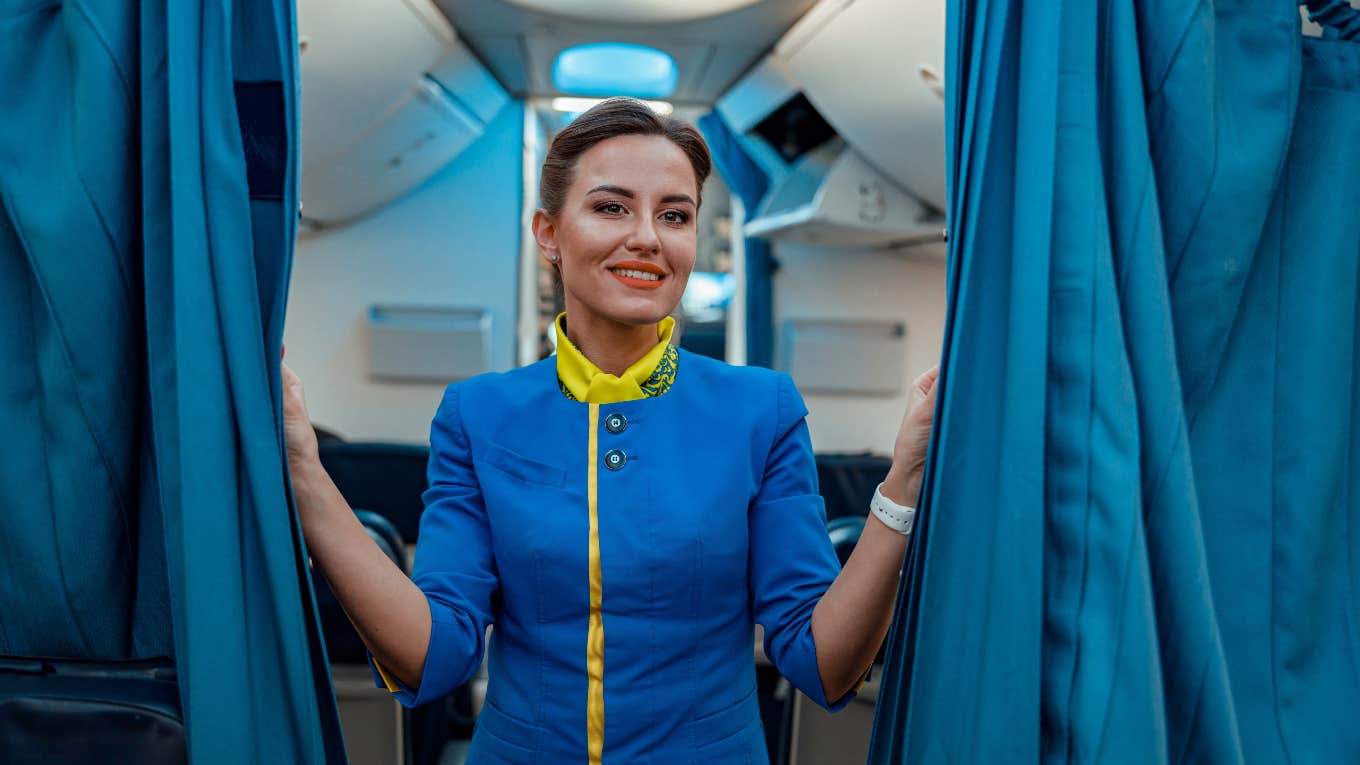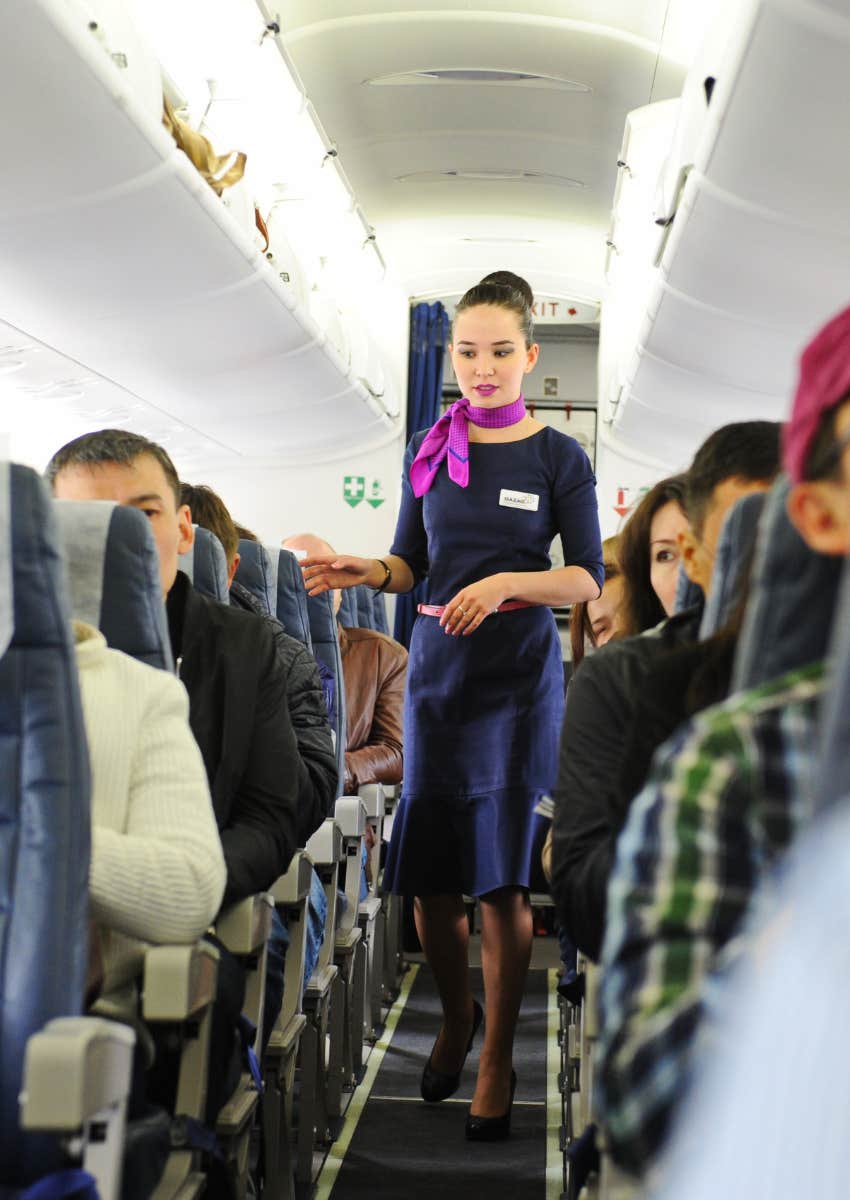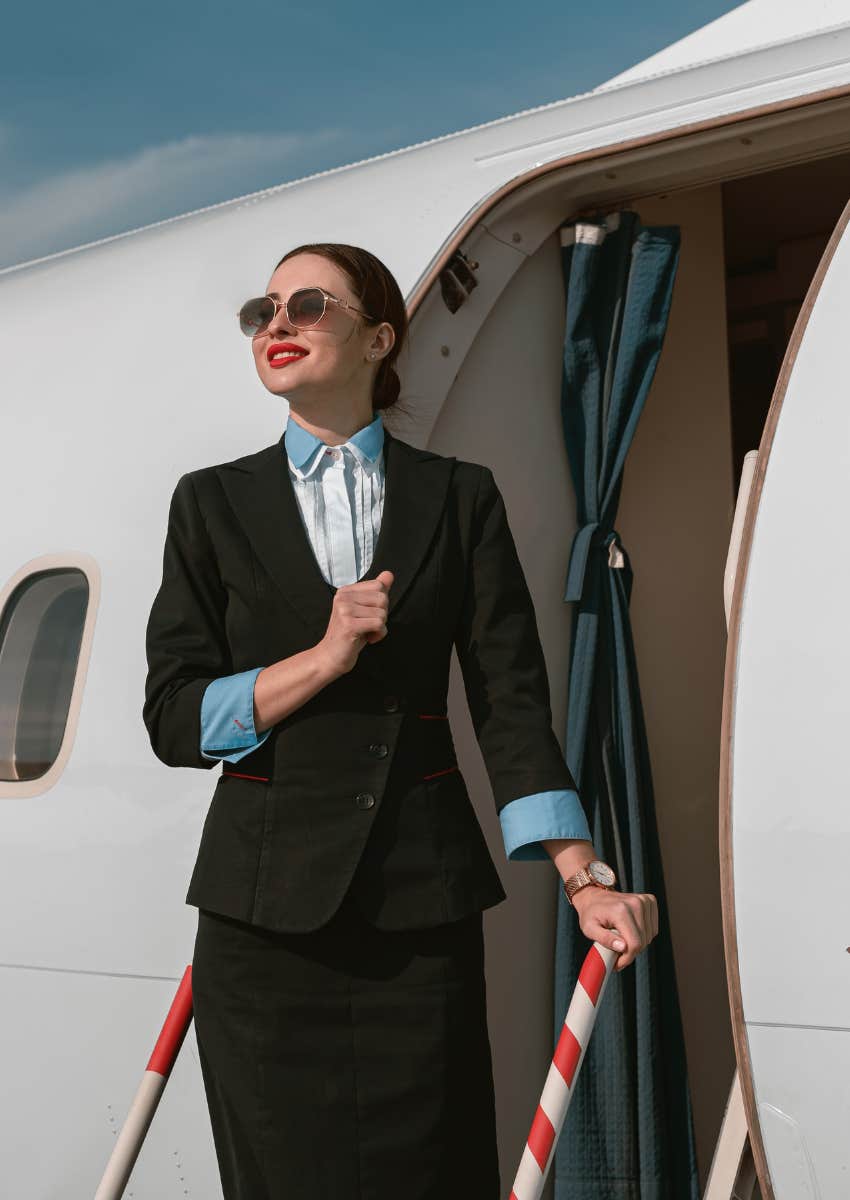The Simple Behavior That Lets Flight Attendants Know They Can Trust You In 2 Seconds Or Less
When flight attendants greet you at the door, they aren't just being nice. They're actually trying to figure out if they can count on you.
 Yaroslav Astakhov | Shutterstock
Yaroslav Astakhov | Shutterstock If you’ve ever felt frazzled when you’re traveling, you’re definitely not alone. All of the planning it takes to get from point A to point B can be exhausting. It would be perfectly understandable to board a plane out of breath, dragging along your carry-on and kids, just hoping for the best with your flight.
It turns out that your attitude and demeanor when boarding are important. While the flight crew is surely used to seeing all manner of behavior, it’s not an automatic sign that they can trust you. Boarding a plane, frazzled or frustrated, can make you look like a novice traveler, or even a disruptive one, and that’s never what they want to see.
Eye contact with a nod lets flight attendants know they can trust you in a matter of seconds.
Dimple Chudasama-Adams, who describes herself in her Instagram bio as an “online travel business owner and marketer,” shared her thoughts as an expert traveler on what flight attendants are looking to see from passengers. “Want to know who flight attendants secretly love?” she asked. “It’s the quiet pros — the travelers who send all the right signals without saying a word.”
 Vladimir Tretyakov | Shutterstock
Vladimir Tretyakov | Shutterstock
She described “a calm, confident nod and eye contact as you step onboard” as “the three-second gesture they notice.” She included a list of why this behavior is so important. “It signals ‘I’m prepared, not panicked,’” she said. “It shows respect — not entitlement. It’s the non-verbal version of, ‘I’ve done this before — I won’t be a problem.’ And, yes … it can subtly influence how you’re treated throughout the flight.”
While Chudasama-Adams may not be a flight attendant herself, one flight attendant did confirm that what she said was true.
Micki Spollen, a flight attendant with a well-known U.S.-based airline, said that the number one thing she and her co-workers are always looking for is “people who would be helpful in case of an emergency.” She continued, “So eye contact, nod, calm demeanor shows someone who would be more likely [and] willing to take direction and help if we needed them to, versus someone who’s nervous and panicky.”
While all of the stories you hear from flights might be about the people who absolutely do not act like that, Spollen shared that most people do fit that mold. “I would say the majority of people give those signs you can trust them,” she stated.
There are also some subtle things flight attendants pick up on that go beyond someone’s demeanor. “We also look for signs like military or first responder clothing [and] people who look physically strong (for things like removing life rafts or lifting people up, etc.),” she added. While passengers may think that flight attendants simply stand at the plane door to welcome them, they’re actually doing some pretty intense analytical work.
Flight attendants pay careful attention to their passengers so they know who they can rely on.
Writing for Reader’s Digest, Lois Alter Mark shared some of the things flight attendants pay attention to when you’re boarding to determine what kind of passenger you’ll be. Veteran flight attendant Emilia Ryan said, “We use this information to help make you more comfortable and have a better flight.”
 Kostiantyn Voitenko | Shutterstock
Kostiantyn Voitenko | Shutterstock
Mark said that flight attendants always notice how friendly, distracted, and attentive you are. In other words, if you offer eye contact with a polite smile and nod, you’re going to stand out in the best way.
Flight attendants are extremely observant, as Mark noted, and can tell a lot about you just by looking at you and interacting with you for a few seconds. That’s a good thing, because it helps them to do their jobs even more effectively. If you want a flight attendant to know you’re one of the good ones, take a second to make eye contact with them and nod. It will go a long way.
Mary-Faith Martinez is a writer with a bachelor’s degree in English and Journalism who covers news, psychology, lifestyle, and human interest topics.

